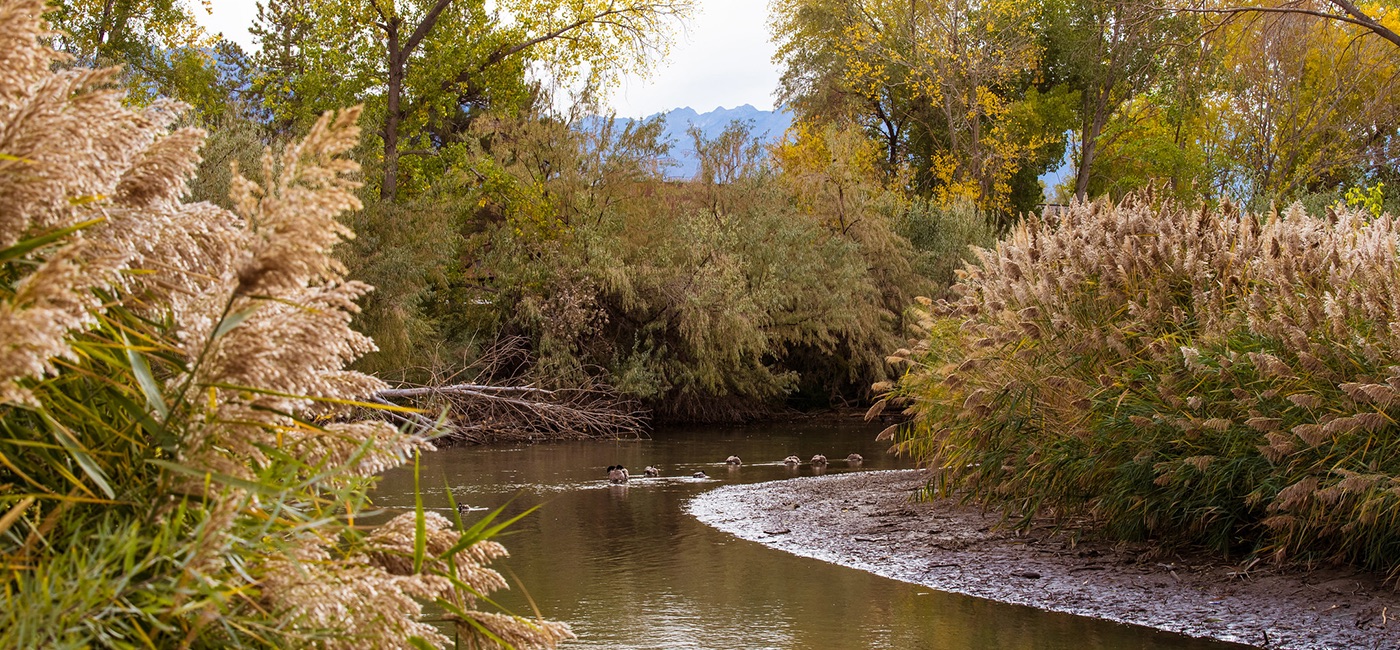Towards a Land Acknowledgment

Tracy Aviary and Jordan River Nature Center are located in the Newe (Sosogoi/Shoshone; Kutsipiuti/Goshute) and Núuchiu (Yuta/Ute) territories. The state of Utah where we are located is named after the Yuta-Shoshone peoples, and also includes Nuwuvi (Paiute) and Diné (Navajo) territories. This is what I’m calling a statement of place, which is more a matter of fact expression rather than a land acknowledgment. The reason for this is in my understanding, experience, and practice a land acknowledgment requires more, including meaningful relationships with Indigenous peoples and offerings to place. This is something we are working on and working towards. Building on conservation work this organization does and taking more intentional actions to confront colonial legacies, systems, and structures, we are working towards building better relationships with the first peoples of this place.
There are currently eight federally recognized nations in the state of Utah that are derived from both smaller and larger cultural and language groups. Federal recognition is a political category for sovereign nations that have a nation to nation relationship with the United States. Colonization has been harmful on many levels, and continues to disrupt self-determination and autonomy of not just recognized tribal nations, but also for unrecognized bands, nations, and other Indigenous forms of social organization locally, nationally, and globally. The state of Utah is also home to tens of thousands of Indigenous peoples from across the continental U.S., representing over 50 Indigenous nations. There are also many other Indigenous peoples from across these continents, neighboring oceans, and globe who have since gathered in this place and now reside here in Soonkahni (Salt Lake Valley).
Diverse peoples, contributions, and perspectives are necessary to improve our relationships with each other and our shared environments because the social and ecological health of people, birds, and waterways such as Pia Okwai (The Jordan River) and Piapaa (The Great Salt Lake) are intertwined. Our statement of place is complimented by our updated policy offering free admission to the Indigenous peoples that belong to the lands where our locations stand and in the state where we are located. This step marks a path towards a more meaningful acknowledgment of the first peoples here as well as the lands, waters, and various flora and fauna who share this place. We are also currently working on building relationships with Indigenous serving organizations to expand our reach and accessibility to local and global Indigenous peoples. This is an invitation for us all to consider a move towards socially conscious curiosity for shared environments and all the life it sustains, together with communities. These actions can support promoting sustainably responsible action through meaningful place-based learning and Eco-justice approaches that are diverse and have equitable outcomes.
By: Arcia Tecun